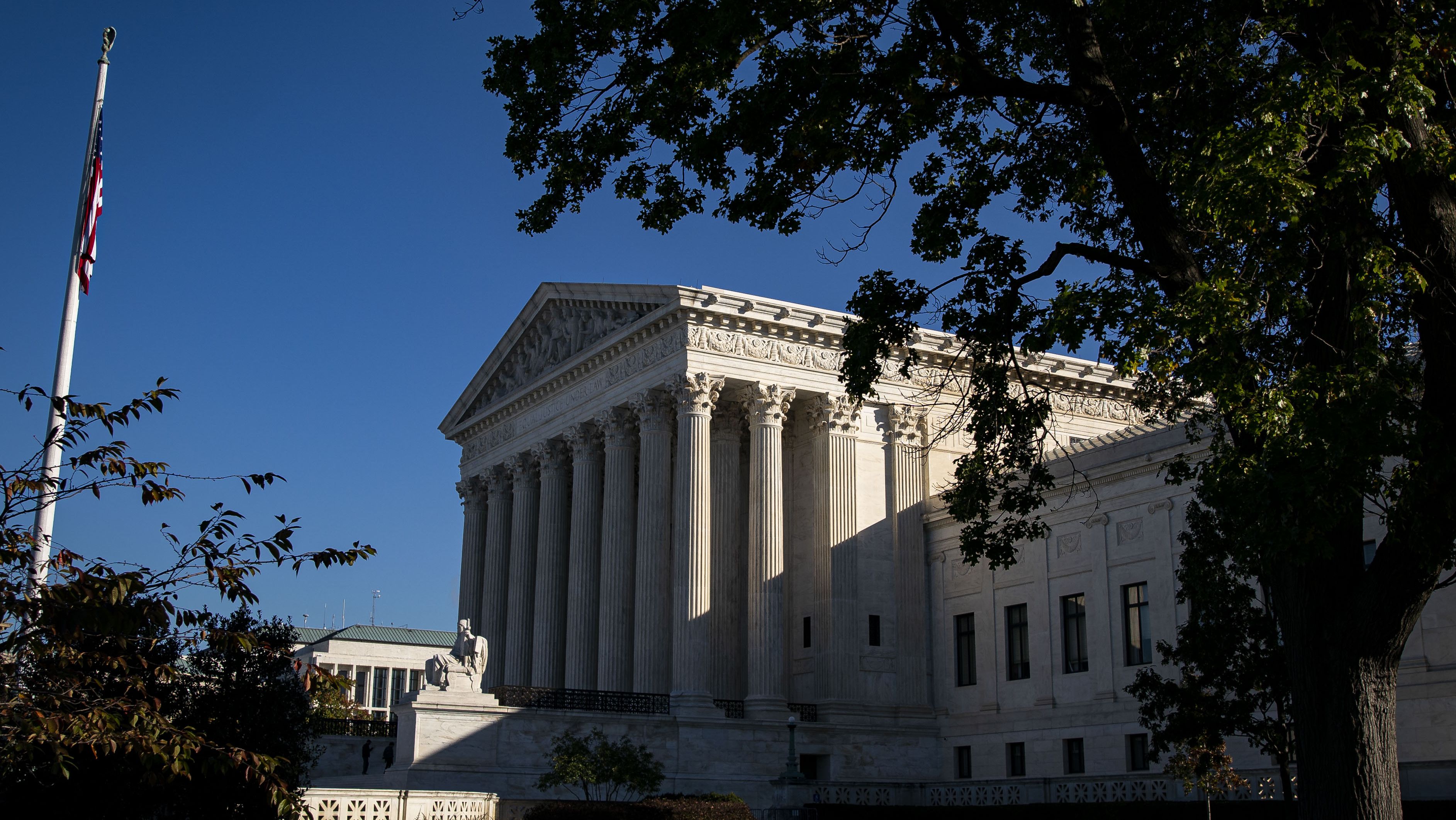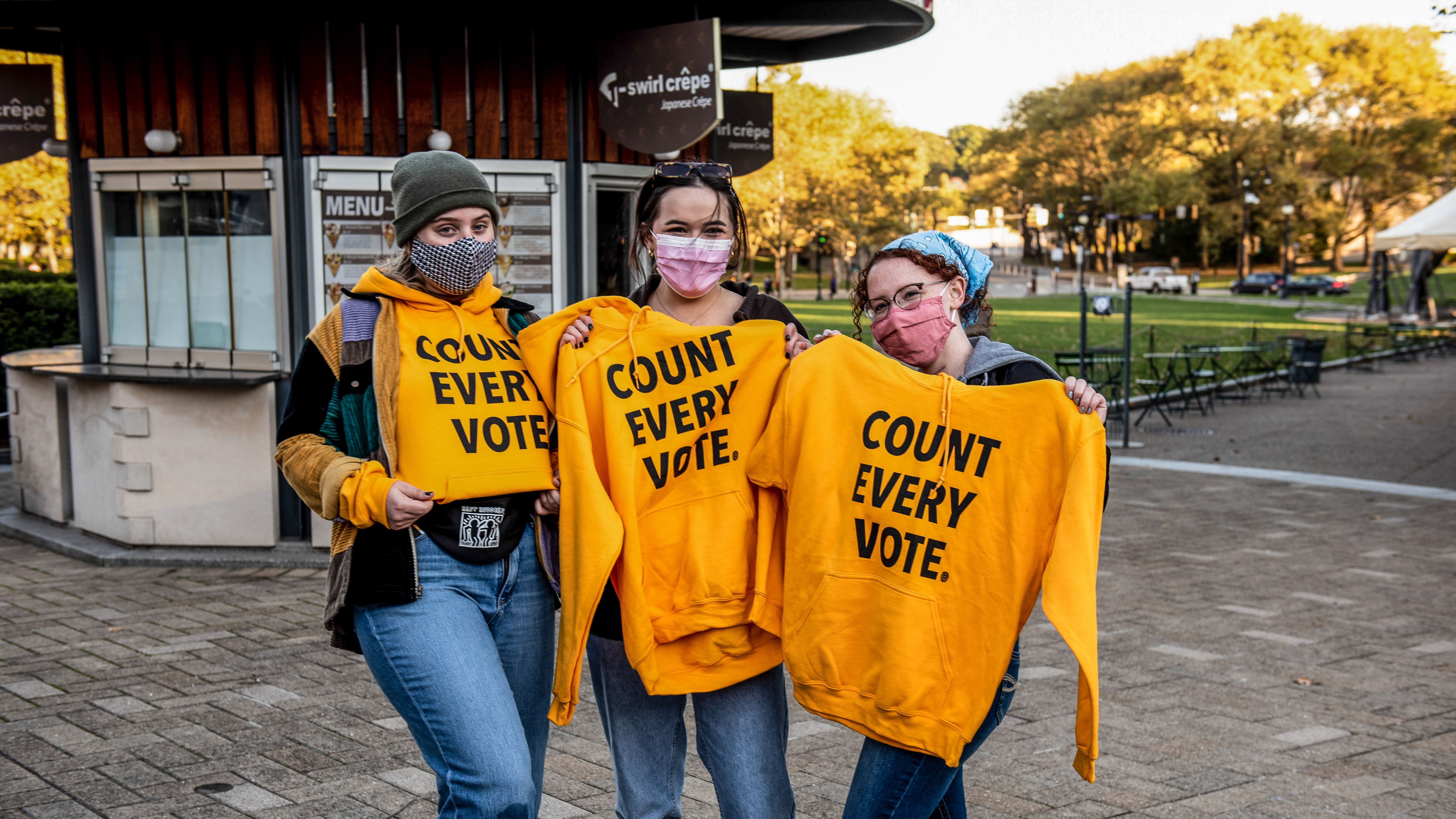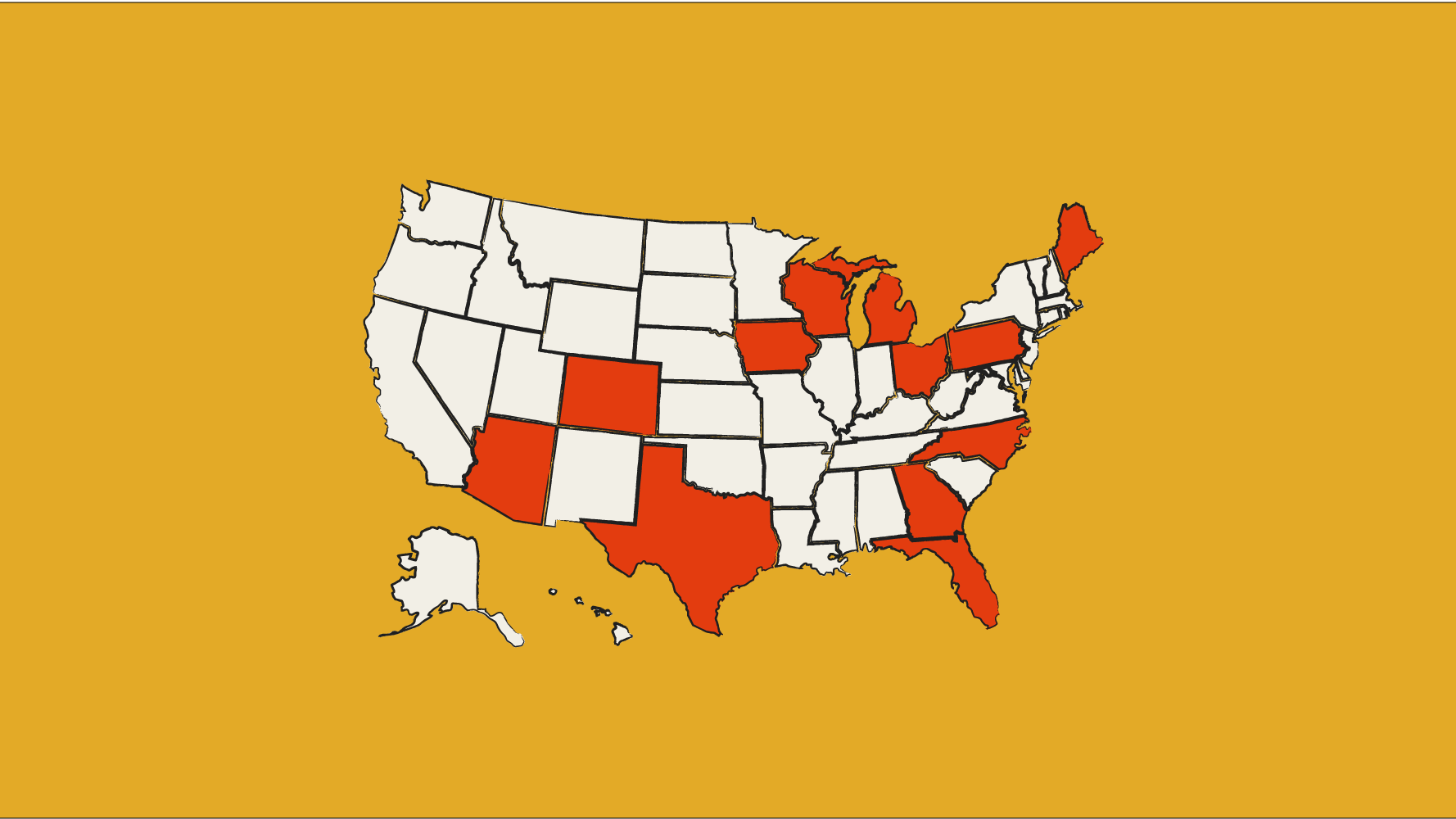Will the 2020 Election Go to the Supreme Court?
You'll likely hear about a lot of lawsuits in the days to come.


As ballots continue to be counted in battleground states like Arizona, Georgia, North Carolina, Pennsylvania, and Michigan, the American people are wondering how long it will take to receive the final results of the 2020 election. While it's unclear how long the results will take (patience is a virtue!), what is clear is that the timeline of a final outcome will most certainly be affected if any state's election results are contested and brought to the Supreme Court.
In a speech on election night, President Trump falsely declared victory and stated that he plans to challenge pending results in the Supreme Court, despite boasting moments before that he had a significant lead in Pennsylvania. He also stated that he wants ballots to stop being counted. Myrna Pérez, director of the Brennan Center's Voting Rights and Elections Program, explains that the path to the Supreme Court depends on who is contesting the election results and where the lawsuit is filed. "The most likely scenario [the president takes a case to the Supreme Court] is one in which they're able to identify something that they think will change the outcome of the election," says Pérez. "If the electoral votes and the closeness of the election councils against that, they will have fewer incentives to spend the time and the resources doing it."
Following a similar sentiment, the Supreme Court's likelihood of hearing a case, specifically if it has to do with a recount, will depend on how close the election results are. This is not something we'll know until all of the mail-in ballots have been counted. States like Pennsylvania have granted an additional three days to receive ballots postmarked on or before Election Day. On the other hand, mail-in ballots in North Carolina must be postmarked and received by November 12. (The winner of the presidential election may not even need to focus on these states, depending on the outcome in other swing states.) If the 2020 election results are brought to the Supreme Court, newly-sworn in Supreme Court Justice Amy Coney Barrett will be given the option to hear the case, or recuse herself from it.
In the meantime, the Trump campaign will likely file a range of lawsuits before we know the final results. On November 4, the campaign announced its lawsuit against Michigan, ordering the state to stop counting ballots. "We have filed suit today in the Michigan Court of Claims to halt counting until meaningful access has been granted," the campaign stated in a press release. "We also demand to review those ballots which were opened and counted while we did not have meaningful access. President Trump is committed to ensuring that all legal votes are counted in Michigan and everywhere else."
There's still a big question mark regarding how quickly said lawsuits will move through the courts, but Pérez has faith in the courts' efficiency. "We have a lot of checks in our systems. The institutions that we have set up to deal with legal matters when you have an election behind you are going to adapt as needed to deal with the pressing situation we have."
If you believe you were a victim of voter suppression and/or did not have the ability to exercise your right to vote, call the nonpartisan Election Protection Hotline at 866-OUR-VOTE.
RELATED STORIES


Get exclusive access to fashion and beauty trends, hot-off-the-press celebrity news, and more.
Rachel Epstein is a writer, editor, and content strategist based in New York City. Most recently, she was the Managing Editor at Coveteur, where she oversaw the site’s day-to-day editorial operations. Previously, she was an editor at Marie Claire, where she wrote and edited culture, politics, and lifestyle stories ranging from op-eds to profiles to ambitious packages. She also launched and managed the site’s virtual book club, #ReadWithMC. Offline, she’s likely watching a Heat game or finding a new coffee shop.
